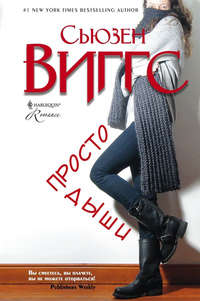
Полная версия
Lakeside Cottage


Praise for the novels of SUSAN WIGGS
“True and unforgettable.”
—Booklist on Lakeside Cottage
“Wiggs excels at portraying the delicate dynamics
among lovers, friends and family members,
and her keen awareness of sensory detail
ensures that the scents and sounds of Rosa’s kitchen
are just as palpable as the heady attraction
between the protagonists.”
—Publishers Weekly on Summer by the Sea
“A human and multilayered story exploring duty
to both country and family.”
—Nora Roberts on The Ocean Between Us
“Susan Wiggs tackles contemporary issues
in the crucible of family with gutsy poignancy
and adroit touches of whimsy that make
for an irresistible read.”
—BookPage on Home Before Dark
“Wiggs tackles some very difficult family issues
in this tightly woven tale. Cleverly uncovering secrets
at the perfect pace, she draws you into the tale
with each passing page, allowing her characters’
emotions and motivations to flow out of the book
and into your heart.”
—RT Book Reviews on Home Before Dark
“Home Before Dark is a beautiful novel, tender and wise. Susan Wiggs writes with bright assurance, humor and compassion about sisters, children and the sweet and heartbreaking trials of life—about how much better it is to go through them together.” —New York Times bestselling author Luanne Rice
Also by SUSAN WIGGS
TABLE FOR FIVE
SUMMER BY THE SEA
THE OCEAN BETWEEN US
A SUMMER AFFAIR
HOME BEFORE DARK
ENCHANTED AFTERNOON
PASSING THROUGH PARADISE
HALFWAY TO HEAVEN
THE YOU I NEVER KNEW
The Chicago Fire trilogy
THE FIREBRAND
THE MISTRESS
THE HOSTAGE
THE HORSEMASTER’S DAUGHTER
THE CHARM SCHOOL
THE DRIFTER
THE LIGHTKEEPER
Author’s Note
Dear Reader,
Thank you for spending time at the lake with Kate, JD and the kids. Lake Crescent in the Olympic Peninsula is truly one of the most magical places in the world. I hope your own summers are filled with as much love and personal discovery as Kate’s was.
Researching Callie’s story line was an eye-opener for me. According to the Centers for Disease Control, over the last five years there has been a tenfold increase in type 2 diabetes among children. This is due in large part to a sugar-rich diet (think about how many soft drinks some kids consume each day) and a sedentary lifestyle (all those hours online, playing video games or watching TV). Teenagers also tend to disregard the long-range consequences of their behavior, and they’re notorious for putting off lifestyle changes for another day. A life-threatening disease like diabetes directly contradicts a teen’s illusion that she’s invincible. The good news is, diet and exercise will dramatically improve a young person’s prognosis. Simply participating in a sport or even taking a daily walk or bike ride can change a patient’s life. She can achieve glycemic control through exercise and healthy eating. For more information, I recommend the Web site www.diabetes.org and the book In Control: A Guide for Teens With Diabetes by Jean Betschart-Roemer and Susan Thorn.
My next novel, Just Breathe, is the story of a woman whose marriage ends just as new life begins, when she discovers she’s pregnant with twins. Events take an unexpected turn when she escapes to her hometown by the sea, where she discovers that love can be even sweeter the second time around.
Best wishes,
Susan Wiggs
www.susanwiggs.com
Lakeside Cottage
Susan Wiggs

www.mirabooks.co.uk
To Martha Keenan, my editor and dear friend,
who shepherded twelve of my books to
publication. Thanks for everything.
ACKNOWLEDGMENTS
Heartfelt thanks to my first readers, the Port Orchard Brain Trust: Rose Marie, Lois, Susan P., Krysteen, P.J., Anjali, Kate and Sheila. I’m grateful to Lori Cross, the best reader and proofreader in the world. I am indebted to paramedic and writer Andy Gienapp, and to the Office of Public Affairs of Walter Reed Army Medical Center—per your request, I’ve fictionalized significant details about the hospital layout and security routine so no one gets in trouble.
I’m grateful to Annelise Robey of the Jane Rotrosen Agency for her input. And to my agent, Meg Ruley—thanks for being a true believer.
PART ONE
“… as you all are aware, the President looks forward to visiting some of our brave troops at Walter Reed on Christmas Eve. It’s an opportunity for the President to thank those in our military who have served and sacrificed to make the world a safer place, and make America more secure. He will also give remarks to the medical personnel at Walter Reed and thank them for the outstanding job they do. However, because of the space limitations, it will be an expanded pool. So it will probably just be one camera, and then the correspondents will be able to attend it ….”
—The White House, Office of the Press Secretary
“Everybody loves a hero. People line up for them, cheer them, scream their names. And years later tell how they stood for hours in the cold rain just to catch a glimpse of the one who taught them to hold on a second longer. I believe there’s a hero in all of us who keeps us honest, gives us strength, makes us noble, and finally allows us to die with pride, even though sometimes we have to be steady, and give up the thing we want the most. Even our dreams.”
—Spider-Man 2
One
Washington, D.C. Christmas Eve
The ambulance backing into the bay of Building One looked like any other rig. It appeared to be returning from a routine transport run, perhaps moving a patient to the stepdown unit, or a stabilized trauma victim to Lowery Wing for surgery. The rig had its customary clearance tags for getting through security with a minimum of hassle, and the crew wore the usual crisply creased navy trousers and regulation parkas, ID tags dangling from their pockets. Even the patient looked ordinary in every respect, in standard-issue hospital draping, thermal blankets and an O2 mask.
Special Forces Medical Sergeant Jordan Donovan Harris wouldn’t have given the crew a second glance, except that he was bored and had wandered over to Shaw Wing, to the glassed-in observation deck on the mezzanine level. From there, he could view the ambulance bays and beyond that, Rock Creek Park and Georgia Avenue. The trees were bare and stark black against a blanket of snow, ink drawings on white paper. Traffic trundled along streets that led to the gleaming domes and spires of the nation’s capital. A fresh dusting of powder over the 147-acre compound gave the Georgian brick buildings of the Walter Reed Army Medical Center a timeless, frozen, Christmas-card look. Only the activity at the intake bays hinted that the campus housed the military’s highest level of patient care.
Although there was no one around, Harris knew he was being watched. There were more security cameras here than in a Las Vegas casino. It didn’t matter to him, though. He had nothing to hide.
Boredom was desirable in the life of a paramedic. The fact that he was idle meant nothing had gone wrong, no one’s world had been shattered by a motor-vehicle accident, an unfortunate fall, a spiking fever, an enraged lover with a gun. For the time being, no one needed saving. Yet for a medic, whose job was to save people, that meant there was nothing to do.
He shifted his stance, grimacing a little. His dress shoes pinched. All personnel present wore dress uniform today because the President was on the premises to visit ailing soldiers and spread holiday cheer. Of course, only a lucky few actually saw the Commander-in-Chief when he visited. His rounds were carefully orchestrated by the powers that be, and his entourage of Secret Service agents and the official press corps kept him walled off from ordinary people.
So Harris was a bit startled when he saw a large cluster of black suits and military brass exiting the main elevator below the mezzanine. Odd. The usual route for official visits encompassed Ward 57, where so many wounded veterans lay. Today it seemed the tour would include the in-processing unit, which had recently undergone renovations courtesy of a generous party donor.
The visitors flowed along a spotless corridor. Instinctively, Harris stiffened his spine and prepared to snap to, not that anyone would notice whether or not he did. Old habits died hard.
He let himself relax a little. From his glassed-in vantage point, he craned his neck for a glimpse of the world leader but saw only the press and bustle of the entourage, led by the sergeant major of the army. A moment later, a civilian administrator greeted everyone with a wide smile. She looked as gracious and welcoming as a Georgetown hostess. Apparently, her domain was on the itinerary and she appeared eager to point out its excellence.
Harris knew that her name was Darnelle Jefferson and that she had worked here for a quarter of a century. She was fond of telling that to anyone who would listen. Looking at her, you’d never guess what the regulars here knew—that like many civilian administrators, she tended to spend her entire day being a pain in the ass to all personnel and creating a mountain of paperwork to justify her own existence. Still, she looked cheerful and efficient in a Christmas-red dress with the requisite yellow ribbon pinned to her bosom, and the wattage of her smile increased as the impossible occurred. The President separated from the pack and stepped forward for a photo op.
Then, even more surprisingly, Mrs. Jefferson took charge of the tour, leading the group along the wide, gleaming corridor. Two cameramen trolled along beside them, the big lenses of their cameras capturing every movement and nuance for the nightly news. The party stopped off at the first intake room, where a wounded soldierhad arrived from another facility. Harris knew that the official photos and film would portray the President with the soldier and his family in an intimate circle around the hospital bed. The pictures wouldn’t show the vigilant Secret Service, or the booms and mikes hovering just out of sight.
That’s showbiz, thought Harris. He didn’t understand how anyone could put up with public life. To have everyone’s scrutiny on you was a peculiar sort of torture, as far as he was concerned.
The entourage was on the move again, down the scrubbed hallway toward the Talbot Lounge, one of the newly renovated waiting areas, where a twelve-foot noble fir stood, decked in splendor by one of D.C.’s finest florists. They stopped for more photos. Harris could see flashes going off, but he’d lost sight of the President.
Elsewhere in the same wing, the recently delivered patient lay in an intake room flanked on two sides by wire-embedded glass walls. The transport crew had gone to the main desk to fill out their report, and no hospital personnel had arrived yet to in-process the newcomer. The staff members on duty were probably just like Harris, slacking off as they tried to get a look at the President. The patient lay alone, no family member or friend standing by to comfort him in this strange new world. Some people just didn’t have anybody. Harris himself might be a prime example of that, if not for Schroeder. He and Sam Schroeder had been best friends for years, since meeting in a battle zone in Konar Province, Afghanistan. Sam and his family made up all that was important to Harris, and he told himself it was enough.
He took the stairs down to the main level, hoping to get a look at the President’s face. He didn’t know why. Maybe it was the fact that he’d spent a decade serving this country and another four years at the hospital, keeping people from dying. He sure as hell ought to be able to catch a glimpse of the President up close. A memo had advised that there would be a reception later at the hospital rec center—with the Gatlin Brothers performing—but that was sure to be a mob scene.
A pair of marines in dress blues stood sentinel at the double doors to the unit. Harris gestured with his clipboard and flashed his ID, projecting an air of brisk efficiency. Once inside the unit, he had to act busy or they’d know he was loitering in order to see the President, a practice that was frowned upon.
Harris stopped outside the admittance room where the new arrival lay. He took a chart from the U-shaped holder on the door, flipped up the metal cover and pretended to be studying it.
The sound of footsteps and voices grew louder as the presidential party approached.
“… new Cardiothoracic Stepdown Unit is equipped with state-of-the-art monitoring equipment,” Mrs. Jefferson explained in broad, grave tones. “It’s now our country’s leading center of clinical care, research and evaluation.” She droned on as though reading from a prepared script, and Harris tuned her out.
The party drew closer. Finally Harris caught a glimpse of the Commander-in-Chief. His expression was set in his trademark look of compassion, one that had endeared him to the nation for two terms. The President and the hospital administrator separated from the group. Darnelle Jefferson led the way toward the in-processing unit where the new arrival lay.
Damn, thought Harris, time to disappear. Quickly—but not too quickly—he slipped into an admit room, connected to the unit by a set of green swinging doors. By looking through the round portals, he could see straight through to the next two rooms. He focused on the new patient through the glass, expecting him to be lying there quiet and alone, probably scared shitless, unaware that the President of the United States was just a few steps away.
Except that the guy wasn’t quiet. For a cardiac patient, he seemed awfully busy, sitting up on the gurney, tearing away his mask.
Harris studied the chart he’d grabbed from the rack outside the door. Terence Lee Muldoon. He was a combat vet, a transferee from a U.S. military hospital in Landstuhl, Germany. The chart listed him as twenty-five years old—damn young for heart trouble.
In his time, Harris had seen thousands of cardiac patients. The condition was always characterized by a grayish pallor and palpable look of fatigue.
Not this character. Even from a distance and through two sets of doors, Harris could see that his face was a healthy pink, his movements economical and assured.
At that moment, the entourage stopped in the corridor and the President and Mrs. Jefferson entered Muldoon’s room. The glassed-in cubicle was too small to accommodate more visitors, and the bodyguards hovered outside, craning their necks, their gazes constantly on the move, their lips murmuring into their hidden radios. A pair of photographers pressed their camera lenses against the glass. The President greeted Muldoon with a handshake, then moved behind the gurney for the requisite photo op.
There was never a specific moment when Harris decided something was wrong. He never saw a maniacal gleam in the impostor’s eyes or heard some sort of evil cackle like in the movies. Real evil didn’t work that way. It was all quite … ordinary.
Sweet baby Moses, thought Harris.
There was also never a particular moment when Harris decided to take action. Making a decision implied a thought process that simply didn’t happen. Harris—and the unsuspecting President—had no time for that. Flipping the silent alert signal on his shoulder-mounted radio, he slipped through the double doors into the next in-processing room, adjacent to where the President was. He knew the security cameras were recording his movements, but the stranger next door didn’t appear to have noticed him.
Harris refrained from shouting or making any sudden movements. The patient was not yet aware of him, and he didn’t want to draw attention to himself. He had to move fast, though, because his movements were going to look highly suspicious to the security cameras. Those watching him were going to think he was a nutcase or worse—a bad guy.
The flow of events unfolded with a peculiar inevitability. Later—much, much later—Harris would watch the videos made by both the security monitors and the press corps, but he would remember none of it.
Seconds before the personnel in the hallway responded to the alert, the patient swept aside the thermal blanket. With his free hand, he yanked away the gown to reveal rows of dynamite duct taped to a body-hugging vest.
“Anybody takes me out,” he screamed at the glass wall, “and I go up like the Fourth of July. And I take this whole wing of the building with me.” He leaped to the floor and glared at the horrified crowd on the other side of the glass. His fist closed around the igniter, ready to detonate the explosives.
The President stood stock-still. Darnelle Jefferson gave a hiccuping gasp of sheer terror. Harris froze, too experienced to let fear get in the way. He recognized the shield tattooed on Muldoon’s forearm. It was the iron falcon and sword of a Special Forces unit.
So they were dealing with a rogue from Special Forces, as highly trained as Harris himself, a disciplined killer gone awry. The assassin hadn’t seen him yet. He was strutting in front of the wire-embedded glass while a dozen firearms were aimed at him.
Harris studied the homemade explosive vest and wondered how the hell the transport crew had failed to notice it. The explosives appeared to be plastic ordnance with an igniter operated by a toggle mechanism secured with more duct tape and connected to wires that would activate the explosives. It would have to be detonated manually, unless there was a secondary trigger he wasn’t seeing.
Outside the cubicle, bodyguards and marines broke into action. Honed by countless drills, procedure would be followed to the letter. There would be an immediate lockdown, all units would come to full alert and alarms would shriek across the vast, snowy campus of Walter Reed. Even now, a security squadron was probably surrounding the building.
Mrs. Jefferson made a tiny sound for such a big woman and fainted dead away, taking a Lifepak monitor along with her. It crashed to the floor, startling Muldoon, and Harris was sure he’d spook and ignite the explosives. His left hand, which had been gripping the manual trigger, let go momentarily as he regrouped.
Darnelle had given Harris a seconds-long window of opportunity. Knowing he had a chance was all he needed. It was only one chance, though. If he blew it, they were all toast. Or confetti, more accurately.
He burst through the double doors, everything focused on the assailant’s trigger hand. His entire body launched itself at the assassin in a single-move tactic, one he’d been trained for but had never used until now.
Muldoon went down, screaming as Harris crushed the man’s left wrist to disable his hand. They hit the floor together. Muldoon was shocky from the crushed wrist. That was something.
There was a sound like a rifle shot. Harris felt something hit him like a cannonball. Jesus, had the son of a bitch detonated the explosives?
No, the igniter, Harris realized. The impact had triggered it, but it had misfired. That was the good news. The bad news was, the failed explosion was killing him. His limbs went immediately ice cold as if everything had been sucked out of him. He was aware of movement all around, the President taking cover, the frenzy of highly trained Secret Service men jolted into action. Alarms bayed and someone was screaming. A furious ringing sound blared in his ears. The reek of chemicals seared his throat.
The world dissolved into double images as Harris’s consciousness seeped away like the blood on the floor. Sounds stretched out with an eerie echo, as though shouted down a well. “Freeze … freeze, freeze….” The barked order reverberated through Harris’s head. “Nobody move! oove, oove….”
Harris’s pulse was thready. Lying in a widening pool of blood, he imagined each system shutting down, one by one, a theater’s lights going dim after a final performance. He felt himself quiver, or maybe it was the assassin struggling against him. To die like this, he thought, at the President’s feet. That just sucked. Offended his sense of propriety. Sure, it wouldn’t matter to him after he was gone. It shouldn’t matter at all, but somehow it did.
Harris could see his own reflection in the dome of the 360-degree security camera mounted in the ceiling. Blood spreading out like an inky carpet. It always looks worse than it is, he told himself. He said that to his patients all the time.
The swarm descended, a pandemonium of black suits and dress uniforms as the Secret Service came forward to apprehend the crazy and secure the chief executive.
Harris was cold and headed somewhere dark. He could feel himself slipping, falling into a black well.
“Make way,” a loud voice barked, the words echoing, then fading. “Somebody get this man some help.”
PART TWO
“The best way to escape from a problem is to solve it.”
—Alan Saporta, American musician
Two
Port Angeles, Washington Summer
“It is a truth universally acknowledged, that a single woman in possession of a half-grown boy must be in want of a husband.” Squinting through her vintage cat’s-eye glasses, Mable Claire Newman defied Kate Livingston to contradict her.
“Very funny,” Kate said. “You tell me this every year.”
“Because every summer, you come back here, still single.”
“Maybe I like being single,” Kate told her.
Mable Claire aimed a look out the window of the property management office at the half-grown boy and his full-grown beagle, playing tug-of-war with a sock in Kate’s Jeep. “Are you at least dating someone?”
“Dating I can manage. It’s getting them to come back that seems to be the problem.” Kate offered a self-deprecating grin, an almost jaunty grin, just wide enough to hide behind. Men were often startled to discover she was a mother; she’d had Aaron at twenty and had always looked young for her age. And when they saw what a handful her boy was, they tended to head straight for the door.
“They’re nuts, then. You just haven’t run into the right fellow.” Mable Claire winked. “There’s a guy staying at the Schroeder place you ought to meet.”
Kate gave an exaggerated shudder. “I don’t think so.”
“Wait until you see him. You’ll change your mind.” She opened a cupboard with an array of tagged house keys and found the one marked with Kate’s name. “I didn’t expect you until tomorrow.”
“We decided to come up a day early,” Kate said, hoping there would be no further questions. Though Mable Claire had known Kate through all the summers of her life, she wasn’t ready yet to talk about what had happened. “I hope that’s okay.”
“Nothing wrong with starting the summer a day early. The housekeeping and yard crew have already been to your place. School out already?” she asked, tilting her head for a better view of Kate’s boy through the window. “I thought the kids had another week.”
“Nope. The final bell rang at three-fifteen yesterday, and third grade is just a bad memory for Aaron now.” Kate dug through her purse, looking for her key chain. Her bag was littered with small notes to herself because she never trusted her own memory. Besides, this made her feel organized and in control, whether or not she actually was. She had a number of projects lined up for the summer. She needed to re-grout the downstairs bathroom tile at the cottage. Paint the exterior trim. Not to mention renewing the bond with her son, reinventing her career and finding herself.








